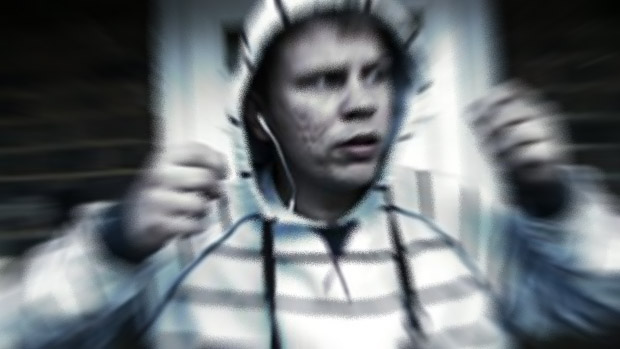Syed Haider
Making the Most of the Proposed Protest on the 31st of Oct
Innayat Bunglawala recently wrote on the Guardian’s ‘Comment is free’ that there was a need to respond to a small group of Muslims’ misguided efforts on the 31st of October to carry out a protest demanding the abolishment of the Houses of Parliament. To offset this awful idea conceived by these unimaginative Muslims, Innayat proposes a counter-protest. This will distance the majority of ‘moderate’ Muslims from this insignificantly small group of firebrand Muslims who happen to be Al-Muhajiroun diehards guised under the new name of Islam4UK. Innayat also points out that while this kind of thing should normally be ignored,…
Diversifying Muslim Cultural Production
Abstract: This paper seeks to lay out a case for the importance of producing and drawing on a number of cultural products – all the way from documentaries and blogs to novels and plays – in order to widen, strengthen and make da’wah more influential. However, the paper seeks to go beyond such simple and, it is hoped, appreciable efforts to analyse more deeply the nature of cultural products in relation to social reality and their impact on individual subjectivities. The paper argues that if we see cultural production in sociological terms we will soon see the centrality of cultural…
The Power of Images
I find myself involved with the meaning and significance of vision in our culture now – with the experience of seeing, looking and watching. I want to connect the discussion of technological image culture to the wider debate that has been undertaken recently concerning vision and modernity. Kevin Robins, Into the Image Heidegger famously said that ‘the fundamental event of the modern age is the conquest of the world as picture’. It is the prerogative of philosophers to be cryptic and Heidegger exercised that right in abundance. But I think today, surrounded as we are by such large quantities of…
Dua: The Weapon of the Believers
Dua: The Weapon of the Believers is an invaluable book (and CD) to have in ones library. This is (to the author's credit) the most comprehensive treatise to have been written on the subject in English in recent times. It is exceptionally lucid and remarkably accessible to the layman without compromising the depth with which it delves into the subject. The book deals with every aspect of dua from the types of supplication to the numerous benefits involved; from its pre-conditions to its etiquettes through to the factors that prevent ones dua from being answered. Yassir Qadhi takes us through the book with…
A Society Divided
A short intro Late in the sixties, Jane Elliot, a primary school teacher in America, conducted an experiment with her third grade class. She told an all white group that blue-eyed people were "on top" and better than brown-eyed people. She followed this with a nit picking of mistakes made by brown-eyed people: "Didn't your father kick you?" She asked a brown-eyed boy which he confirmed with a quiet “yes”. In response she remarked that blue-eyed fathers would never kick their children. Later on in the lesson when a member of the class took slightly longer to follow an instruction…
The Politics of a Psychosis
The idea that I am possessed with is that of restoring a political existence to my people, making them a nation again, giving them a national centre, such as the English have, though they too are scattered over the face of the globe. George Eliot, Daniel Deronda The imagery of empire and exile, as Judith Raiskin identifies, animates Daniel Deronda and converges in “the Jew” of colonial literature and rhetoric. The ambivalence that generates around the figure of the Jew is (in part) entrenched in “his” statelessness. Indeed, the point of agreement between many European anti-Semites and Zionists was that…
The Squeeze: the shift in the debate
{mosimage} ...the government and certain right wing ideologues have sought to popularise the notion of Muslim separatism; this idea that Muslims have an ingrained antipathy toward Britain...
Colonial Pasts/Colonial Presents
The past is never dead. It’s not even past. William Faulkner, Requiem for a Nun The tragedy of Gaza today and of Palestine more broadly is a tragedy of forgotten histories. The world has forgotten that Israel is a colonial state. It is both born of a colonial past and practices a colonial economy when it comes to human life. For it, Palestinians are expendable while Jewish Israeli’s (and the distinction is important so as to account for the dire state of Palestinian Israelis) are more than mere citizens; they are God’s chosen people. As if to illustrate that God…
Integration: Part Two, Reconstructing Integration
In the first part of this essay I claimed that discourses shape the scope of our vision as well as the manner in which we cognise the content of that vision. It is through this theoretical position that I have attempted to frame the issue of integration, and in choosing to treat the notion of integration discursively (as opposed to through concrete examples and case studies) I have attempted to highlight the productive aspect of its representational practices. Deconstructing the concept of integration itself opens it up to the question of power relations and presents the discourse built up around…
Integration: Part One, Deconstructing Integration
...the discourse is not shaped by everyone equally, and thus the very discourse that seeks to explain and discuss the topic of integration, ends up establishing a differential of power...




